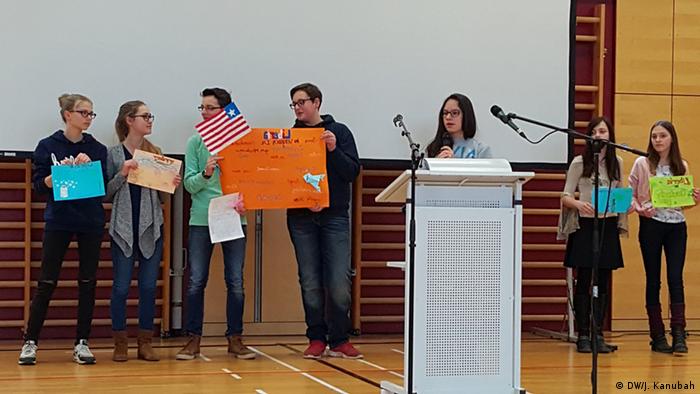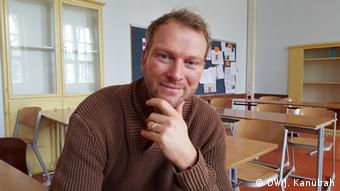As part of an innovative project to educate school pupils about
lifestyle and cultural practices of people in Africa, the Pestalozzi
High School in Munich brought together its pupils under an event called
Africa Day.
The Pestalozzi High School celebrated Africa Day [Afrika-Tag in
German] through a series of public lectures, a workshop and
entertainment programs. The pupils learned mostly about the different
aspects of the cultures and lifestyle of people on the African
continent.A specific focus was placed on Liberia, which is currently struggling to rebuild its health and economic sectors after the Ebola outbreak. As the elctures however tried to portrait Africa in a more positive light than shown through mainstream media, Ebola itself did not feature much on the agenda.
The school pupils were taught about "experiencing life in Liberia or western Africa," according to Andrea Schaal, a teacher at Pestalozzi High School. "It is very important to have an eye on the other part of the world because we are always connected in this global world through globalization," Schaal added.
Liberia is Africa's first independent republic with a long history of campaigning for human rights and cultural diversity.
The German kids were taught these values and were made to understand the necessity of them in any society, according to Schaal.
"Same blood running through our veins"
"We are all citizens of the planet," is German author Michael Jentzsch's main message in his lecture to the kids.
Jentzsch wrote a bestseller novel in 2009 titled "Blood Brother" [Blutsbrüder in German] about his life in Liberia in 1983 as a German kid.
The book is about his friendship with a young Liberian, Benjamin Zahn. Zahn is also a co-author of the book. The two were separated by Liberia's civil war in 1989 and it wasn't until 14 years later that they were reunited.
Beyond friendship, Zentzsch talked about co-existence with people of different races and religion, making specific reference to the current refugee crisis in Europe.
"I try to tell kids when I tour schools, universities and churches that there are so many prejudices against people of other skin colors," Zentzsch said. "I always tell them come on guys; we all have the same blood running through our veins."
"It was amazing, it was really interesting," high school pupil Josephine Hecht said. Hecht and her classmates were asked to showcase some of what they had learned about the culture and practices of the people in Liberia.
"There were different facts about Liberia that I or we didn't know about. I liked the historic aspect more. The culture and lifestyle of Liberia also intrigued me," Hecht added.
"It was very good this year and I found the story of Liberia very interesting," another pupil Katharina Neudegger confirmed. Neudegger was in the same group as Josephine Hecht that showcased Liberia's culture.
Lisa Stumvoll, also a pupil from Pestalozzi High School, watched the performances and speeches from one of the back rows with keen interest. "I would like to visit Africa and I hope my parents would allow it," she said.
Stumvoll admitted she was flabbergasted by the speeches and her understanding of Africa had changed completely.
Sandra Decius, one of the parents of the children had accompanied her son to the event. Decius insisted on coming to the event because she also wanted to learn about Liberia and the African continent.
"I want my son to be able to look over our horizons and see other people in the world," Decius said.
"I want him to see the lives and customs of other people, so he can learn about empathy and how to help other people," Decius added.





Comments
Post a Comment